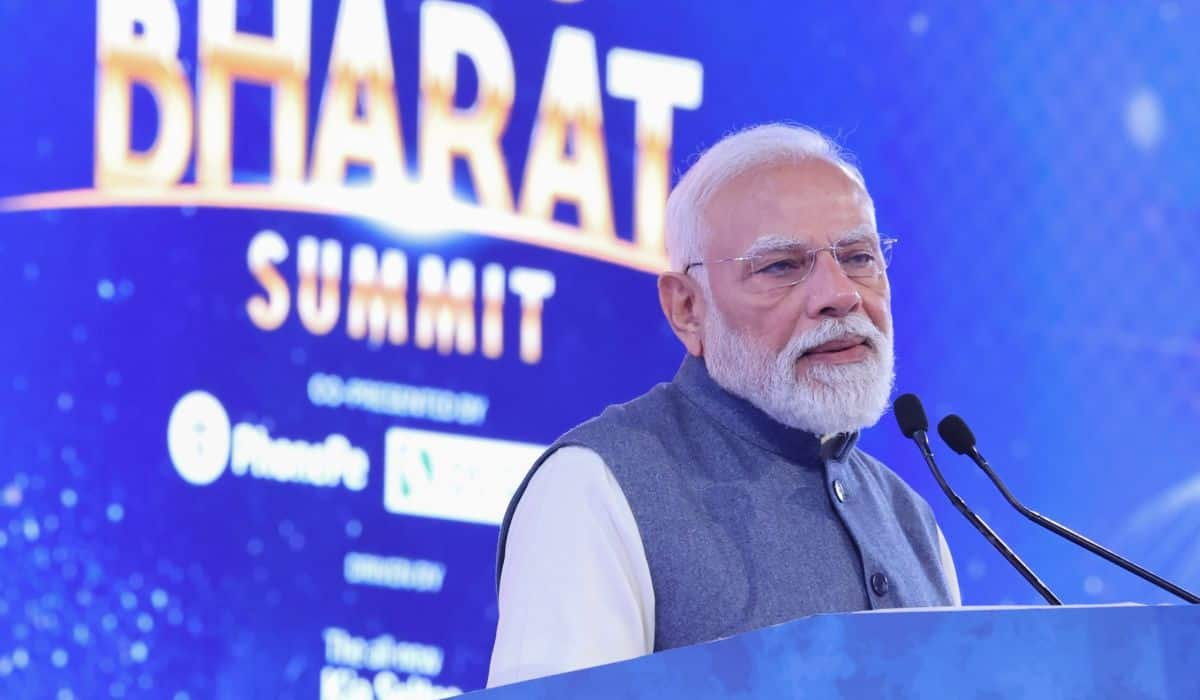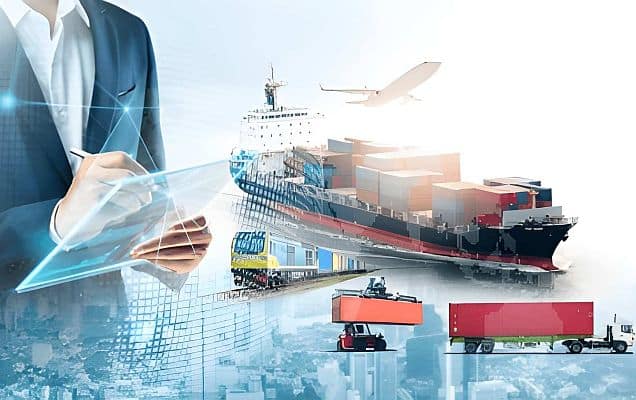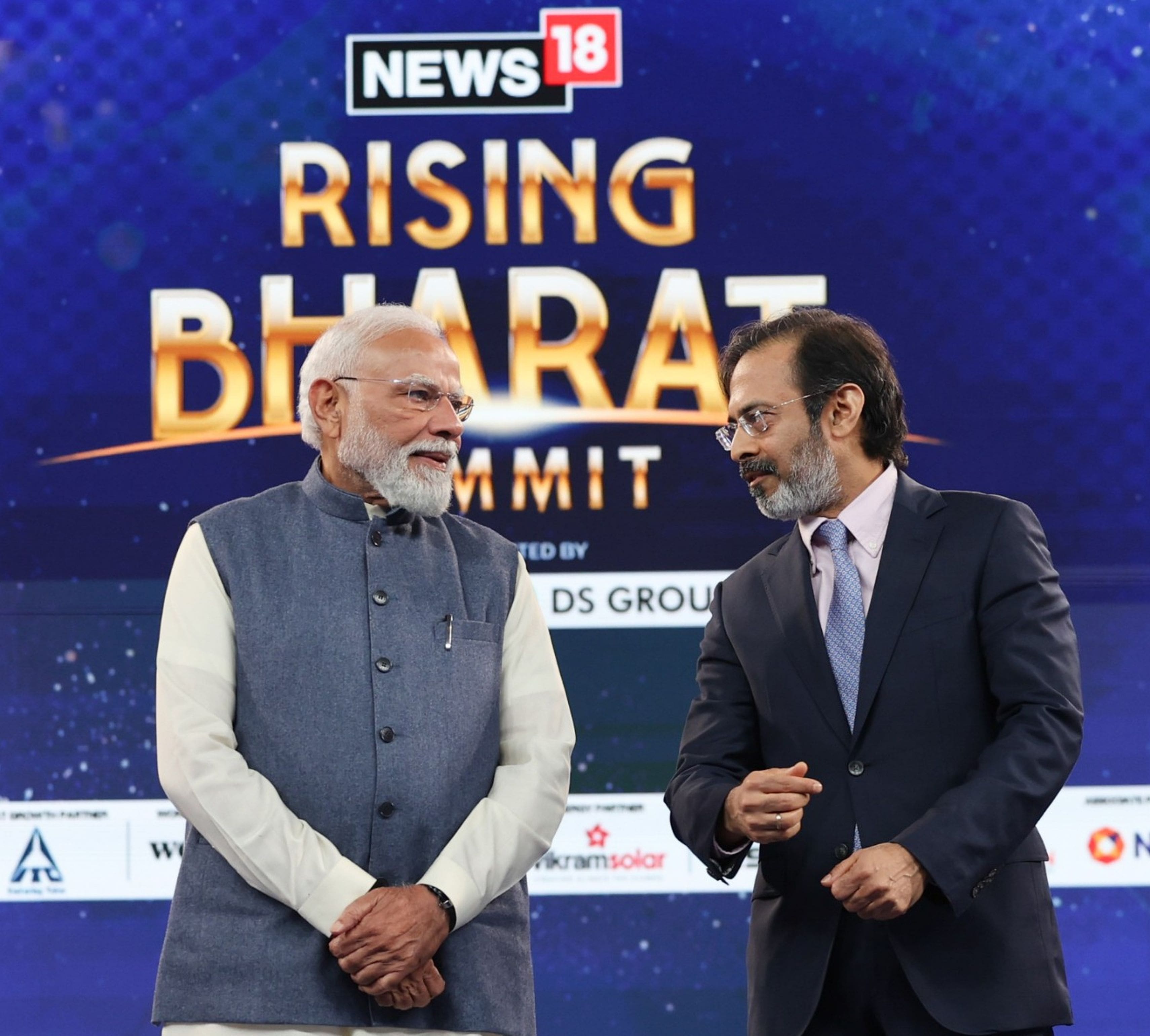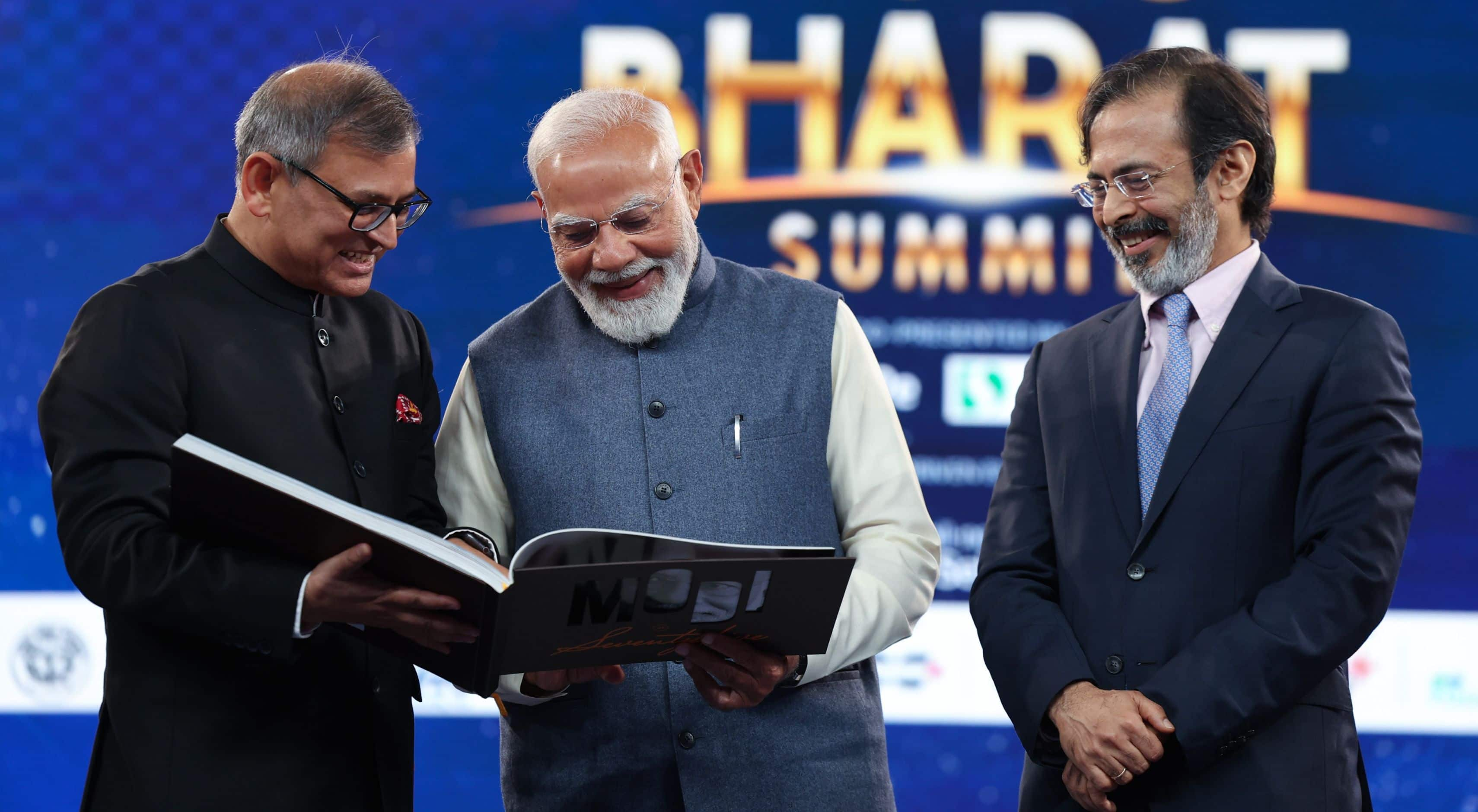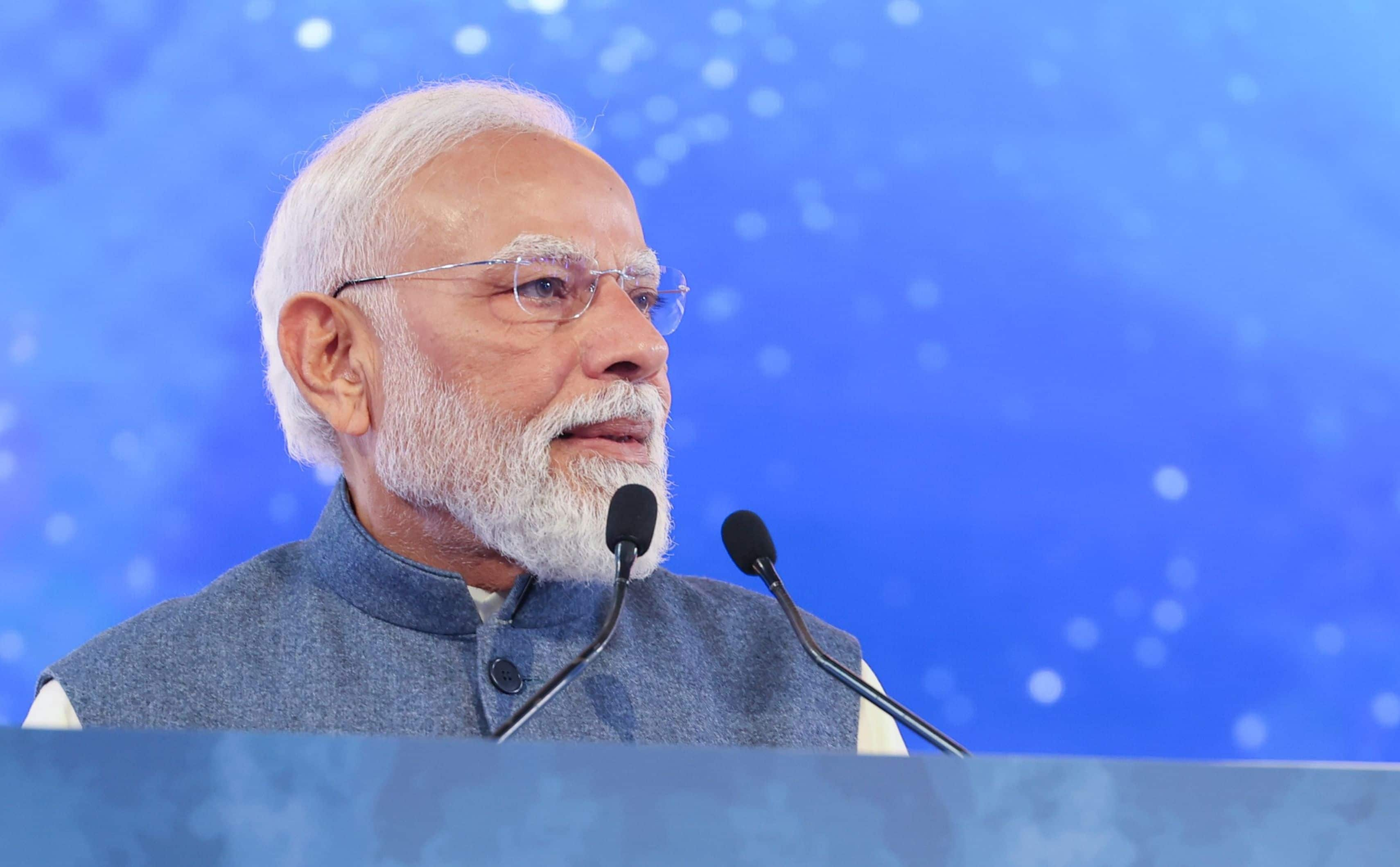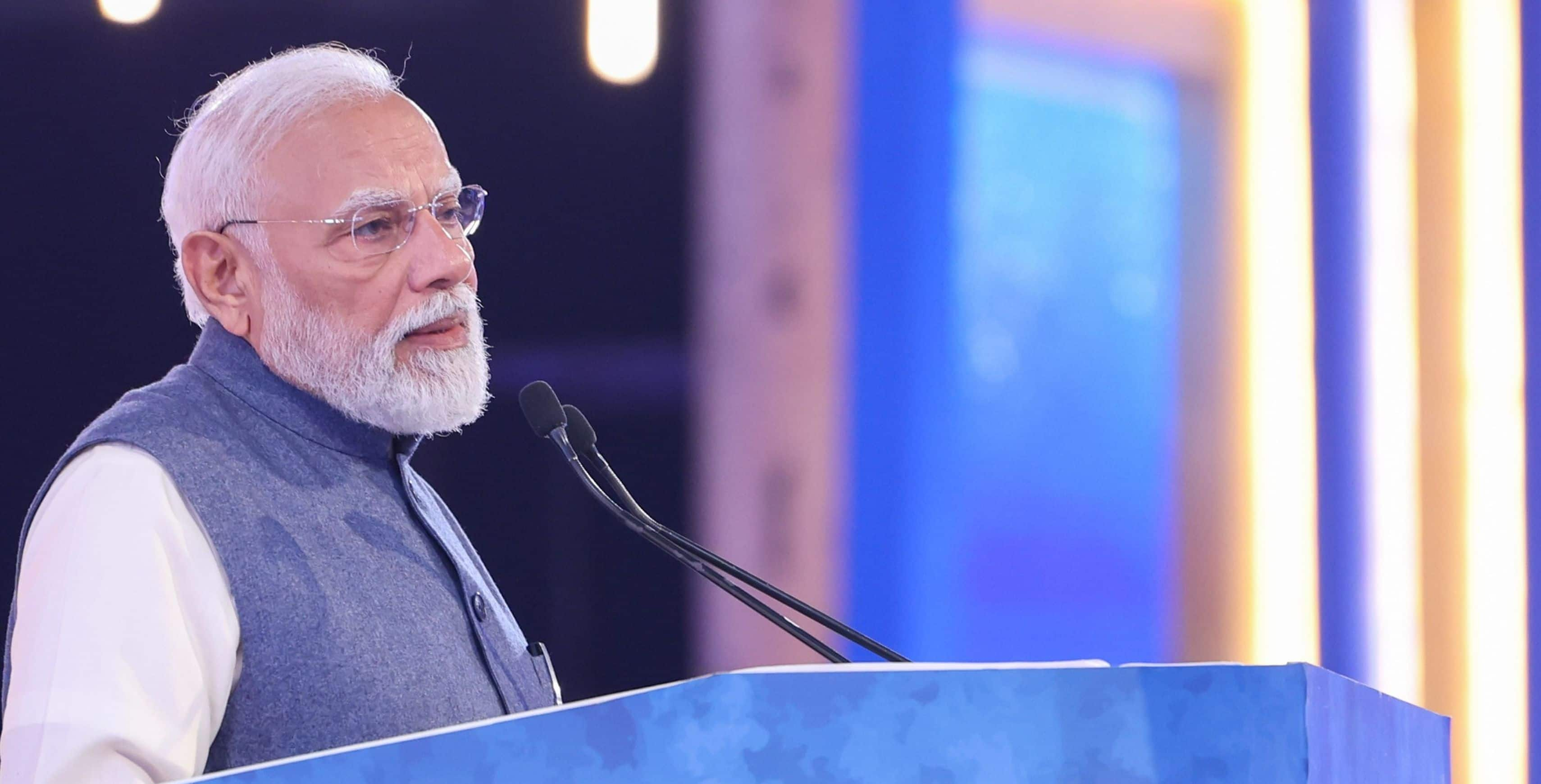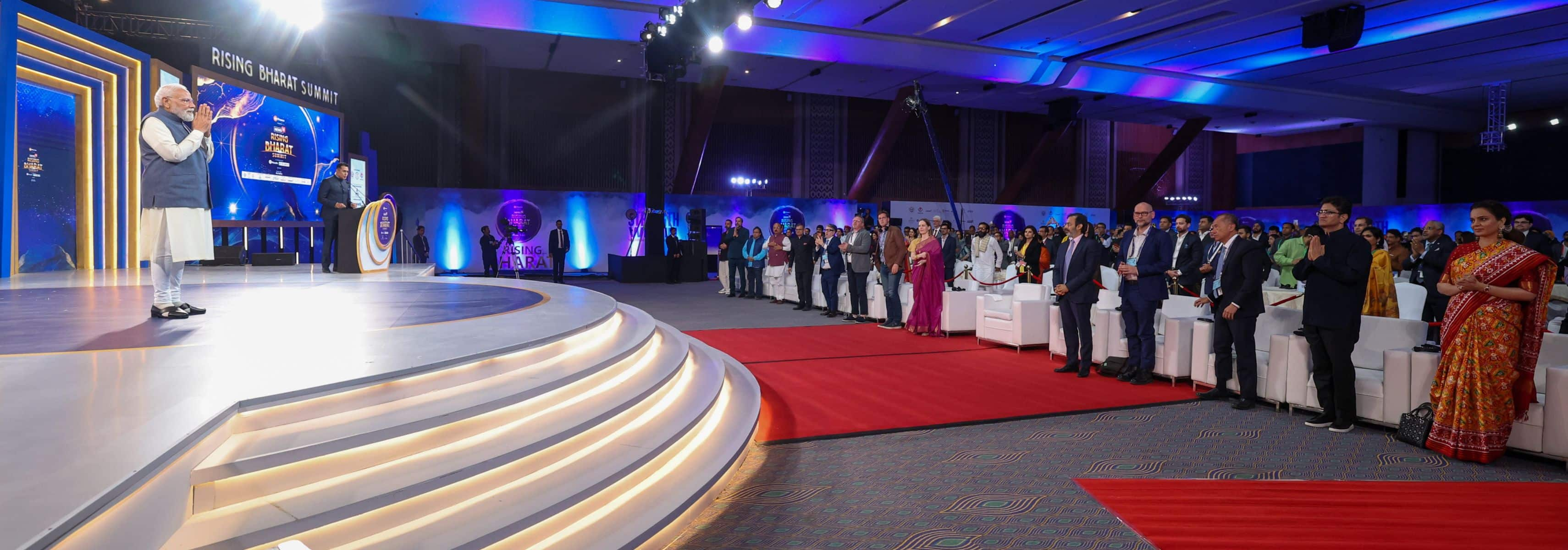Present on the dais the Finance Minister, the Minister of State for Finance, the Governor of RBI, the Chairman of NABARD, officials of the Deposit Insurance and Credit Guarantee Corporation and the largest banking groups of the country, my colleagues from the Council of Ministers, MPs and MLAs and depositors present at many places in different states and our brothers and sisters,
Today is a very important day for the banking sector and crores of bank account holders of the country. This day has become a witness to how a solution has been found to a decades-old problem. The event titled ‘Depositors First’ in keeping with the spirit of depositors first makes it more apt. Over one lakh depositors have got back their money stuck with stressed banks in the past few days. This amount is more than Rs 1,300 crores. About three lakh more such account holders will get back their deposits with the banks soon during and after this event. It's not a small thing in itself. Today I want to make a request especially to our media friends. I requested my media friends when we launched the cleanliness campaign and they continue to help us. Once again, I am making a request to them today. When a bank busts, its news is all over TV and newspapers for several days. It makes headlines. It is natural also because of the nature of the incident. A huge reform has been undertaken today and a very strong system has started in the country. Depositors are getting back their money. I want the media to discuss this comprehensively. Not because, Modi has done it. It is necessary because it will instill confidence in depositors. Banks may go bust because of some wrong reasons or wrong policies, but depositors’ money will not be at risk. Depositors’ money will be safe. This message will instill confidence in the depositors of the country. There will be trust in the banking system, and this is very important.

Brothers and sisters,
Any country can prevent the problems from getting worse only through timely resolution. But you know very well we have had this tendency for several years of avoiding problems, brushing them under the carpet. Today's new India emphasizes on solving problems rather than avoiding them. You recall there was a time when the depositors used to have a tough time in getting back their own money in the event of a bank becoming stressed. They had to face so many problems and there used to be commotion. And it was very natural too. A person deposits his money in the bank with complete confidence. Banks are the only hope for our middle class families, especially those with fixed salary income. When any bank used to go bust due to wrong policies of some people, it was not only the money but the entire life of these families used to be at stake. Life seemed like darkness. From where will they pay the college fees of their children? From where will the money come for the marriage of their children? From where will the money come for treatment of an elderly? One of the sisters was just describing the difficulties she faced when somebody in the family had to undergo a heart operation. There was no answer to these questions before. It used to take years for people to get back their own money from the bank. Our poor brothers and sisters and our middle and lower middle class people have experienced this situation for decades. The problems were especially exacerbated in the case of cooperative banks. Those who are associated with this program from different cities understand this pain very well. Our government took decisions, undertook reforms and amended the law very sensitively to change this situation. Today's event is a result of those decisions. When I was Chief Minister, I remember vividly the people would catch hold of us whenever there used to be any problem in the bank. Though the decision was to be taken by the Indian Government or the concerned banks, the chief ministers were made scapegoats. They would implore us to do something for their money. It was also very natural of them. At that time, I would repeatedly request the Indian Government to increase the deposit insurance coverage from Rs. one lakh to Rs. five lakh so that we could satisfy maximum families. But, they did not accede to my request. They did not do anything, but the people sent me here at the Centre and I did it.
Friends,
In our country, the insurance procedure for bank depositors was developed in the 60s. In a way, it has been almost 60 years. Earlier, out of the amount deposited in the bank, only the amount up to 50,000 rupees was guaranteed. Later it was increased to one lakh rupees. That is, if the bank went bust, the depositors would get only up to one lakh rupees, but it was not guaranteed when they would get that money. It used to remain unresolved for 8-10 years. There was no time limit. Considering the concern of the poor and the middle class, we have increased this amount from Rs 1 lakh to Rs 5 lakh. That is, if any bank is stressed today, the depositors will definitely get back up to 5 lakh rupees. With this arrangement, accounts of about 98 percent of the people have been completely covered. Only 2 percent is left now. In other words, the money of the 98 percent of the people is covered. The number of depositors is also huge. India is celebrating 75 years of independence, the Amrit Mahotsav. With this decision, Rs 76 lakh crore is fully insured. Such a comprehensive security cover is not there even in developed countries.
Friends,
We have tried to solve one more problem by amending the law. Earlier, where there was no time limit for refund, now our government has made it mandatory for 90 days i.e., three months. We have put more burdens on ourselves, because we are concerned about the common man, the middle class and the poor of this country. This means that if a bank turns weak and is poised to become bankrupt, the depositors will get their money back within 90 days. I am glad that the claims of thousands of depositors have also been settled within 90 days of the amendment of the law.

Friends,
Scholars, intelligent people and economists explain things in their own way. But I will explain it in my simple language. Every country aspires for progress. But we have to remember that banks play a huge role in the prosperity of the country. And for the prosperity of the banks, it is equally important for the depositors' money to be safe. If we have to save banks, then depositors need to be protected. And by doing this we have saved the banks as well as the depositors. Our banks are a beacon of trust to our depositors as well as our economy. Therefore, we have been making continuous efforts to reinforce this belief. Over the years, the capacity, capability and transparency of many small public sector banks have been strengthened by merging them with large banks. When the RBI supervises the cooperative banks, it will also increase the confidence of the depositors. We have made a new co-operative system by forming a new ministry. The intention is to make cooperative institutions stronger. Co-operative banks will be more empowered with the creation of the co-operative ministry.
Friends,
For decades, there was a perception in the country that banks are meant only for those who have more money. It used to be the house of the rich. The one who has the most money deposits it. The one who has big business gets quick and more loans. It was also assumed that facilities like pension and insurance are also for those who have money. This was not good for the world's largest democracy. Neither this system is right nor this thinking! And we are constantly trying to change this too. Today, farmers, small shopkeepers, farm workers, construction workers and laborers working in homes are also being linked with the pension facilities. Today crores of poor of the country have got the facilities of accident and life insurance cover of Rs 2 lakh each. About 37 crore countrymen have this protection cover under the PM Jeevan Jyoti Bima Yojana and the PM Suraksha Bima Yojana. In a way, now the financial sector, the banking sector of the country, has been democratized in the true sense.
Friends,
The problem in our country was not only with the opening of the bank accounts, but also with the delivery of banking services to the remotest villages. Today, almost every village in the country has the facilities of a bank branch or a banking correspondent within a radius of 5 km. Today, there are about 8.5 lakh banking touch points across the country. We have given new heights to banking and financial inclusion in the country through Digital India. Today, the common citizen of India is able to do even the smallest transactions digitally anytime, anywhere, 24 hours a day. Far from thinking about it till a few years ago, people who doubted India's potential used to make fun of it.
Friends,
Our government is working continuously to see to it that the leverage of our banks leads to an increase in the potential of the citizens of the country. Did anyone ever imagine that even street vendors or hawkers would get loans from banks? Neither did they think nor we. But today I have to say with great satisfaction that such people are today getting loans under the SVANidhi scheme and they are also expanding their business. Today Mudra Yojana is helping those families with self-employment who had never even thought of it. You also know that 85 percent of farmers, who are small farmers and have a very small piece of land, were forced to take loans at a high interest rate from markets despite the existence of so many banks. We also connected crores of such small farmers with the facilities of Kisan Credit Card and we have extended its scope to livestock farmers and fishermen. Today, easy and cheaper loans worth lakhs of crores of rupees from banks are making the life of these friends easier.
Friends,
Reforms like connecting more and more countrymen with banks, making bank loans easily accessible, expanding digital banking and payments rapidly, etc have helped India's banking system run smoothly even in the biggest disaster of 100 years. I congratulate everybody in the banking sector for not leaving people helpless in the hour of crisis. When the developed countries were struggling to provide help to their citizens, India provided direct help to almost every section of the country at a fast pace. The government was able to make big ticket decisions to save the lives of the countrymen due to the strength that we have developed in the banking sector over the years. Today our economy has not only improved rapidly, but we can see very positive signs for the future.
Brothers and sisters,
The biggest benefit of financial inclusion and ease of access to credit has happened to our sisters, mothers and daughters. It was the misfortune of the country that most of our sisters and daughters were deprived of this benefit for so many decades after independence. The situation was such that our mothers and sisters used to keep their small savings in ration boxes in the kitchen. They had only this place to keep their money, inside the grains and some of them used to celebrate it also. It was a matter of concern that half the population could not utilize the services of banks meant for the safe deposits. The solution to this concern has also played a vital role behind the Jan Dhan Yojana. Today its success is in front of everyone. More than half of the crores of bank accounts opened under the Jan Dhan Yojana belong to our mothers and sisters. We have seen the impact of these bank accounts on the economic empowerment of women in the recent National Family Health Survey. When this survey was conducted, about 80 percent of the women in the country had their own bank account. The important thing is that almost as many bank accounts have been opened for rural women as for urban women. It shows that when positive plans are delivered, they go a long way in removing the inequalities that exist in society. Having their own bank account has not only increased economic awareness among women, but has also expanded their participation in making financial decisions in the family. Now when the family takes any decision, it involves the mother and sisters and takes their opinion.
Friends,
About 70 percent of the beneficiaries of the Mudra Yojana are also women. It has also been our experience that when women get loans, their track record in repaying the same is commendable. If Wednesday is the last date to repay the money, then they repay it on Monday itself. Similarly, the performance of self help groups is also very good. In a way, our mothers and sisters deposit every penny. I am sure that with everyone's efforts and participation, this campaign of economic empowerment will progress very fast. And we are all going to step it up further.
Friends,
Today the need of the hour is that the banking sector should work more actively than before in achieving the goals of the country. During the Amrit Mahotsav of Independence, every bank branch should aim to multiply whatever they have achieved in 75 years by at least two times. You will find how the situation changes. You should come out of your hesitation to give loans due to past experiences. A large number of people in remote areas of the country, in villages and towns, want to connect with banks to fulfill their dreams. If you go ahead and help people, then the economic power of more and more people will increase and so will your own strength. Your efforts will help our small entrepreneurs, middle class youth to move forward in making the country self-reliant. The confidence of the banks and the depositors will reach new heights and today's event will instill a new confidence among the various depositors. The risk taking capacity of banks can also increase manifold. Now there is an opportunity for the banks as well for the depositors. On such an auspicious occasion, I wish you all the very best. Thanks.






